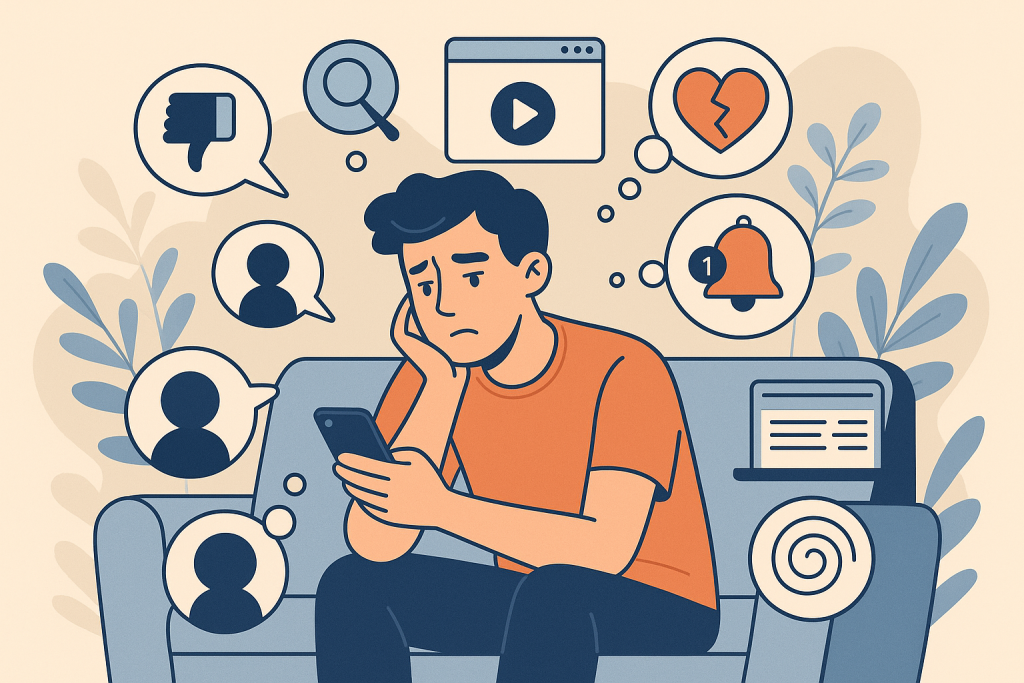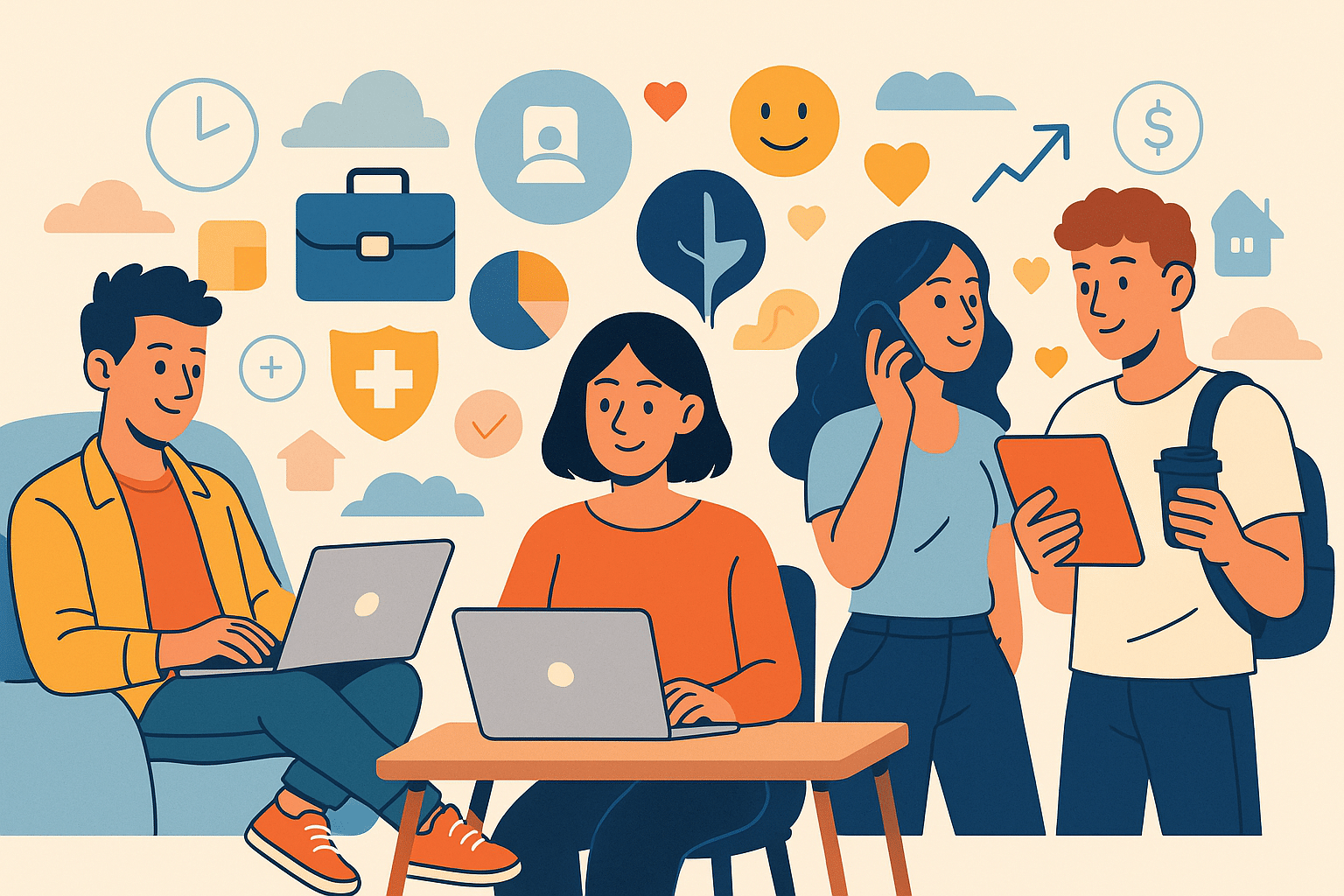Scrolling endlessly or obsessively checking notifications? Your online habits might be telling a deeper story about your real-life personality, priorities, and even mental health. Learn what your clicks, swipes, and likes reveal—and why it matters now more than ever.

How Online Habits Are Changing the Way We Understand People
From the way you doomscroll on Twitter to how often you binge-watch Netflix, your digital behavior isn’t just random—it’s a mirror of your offline life. Researchers are increasingly uncovering how these patterns expose everything from your self-esteem and attention span to your social relationships and productivity.
A recent study from the University of Pennsylvania found that people who used social media for more than 30 minutes a day were significantly more likely to suffer from loneliness and decreased self-esteem (Hunt et al. 2018). It’s no longer just speculation—your “screen self” is a reflection of your real self.
The Most Telling Online Behaviors—and What They Say
1. Scrolling Without Purpose
If you find yourself endlessly scrolling through feeds with no specific goal, you might be struggling with stress, anxiety, or even avoidance behavior. Studies suggest this behavior is often linked to emotional escape or procrastination in offline tasks (Elhai et al. 2020).
2. Constantly Switching Between Apps
Jumping from Instagram to TikTok to Twitter in short bursts can be a sign of low attention span—a growing concern in today’s multitasking digital era. This behavior often parallels a reduced ability to concentrate in daily activities such as work or studies (Rosen et al. 2013).
3. Engaging in Comment Wars
Aggressively debating online might reflect more than strong opinions. Research shows that online antagonists are often dealing with unresolved conflict or a need for validation in their offline relationships (Buckels et al. 2014).
4. Posting Frequently About Your Life
Over-sharing personal updates or selfies can signal a need for social affirmation or low offline confidence. While not inherently bad, excessive posting has been linked to narcissistic tendencies and dependence on external validation (Mehdizadeh 2010).
Digital Clues to Mental Health
Psychologists now monitor digital activity as an auxiliary method for understanding mental states. Google search histories, text message frequency, and even late-night browsing habits can indicate issues like depression, anxiety, or sleep disorders.
Tech companies like Apple and Google have introduced features that monitor screen time and app usage to help users become more aware of how their online habits may be affecting their mental and emotional health (Apple Inc. 2022).
Online Habits in Relationships: The Silent Relationship Killer?
Your online life may also sabotage or strengthen your offline relationships. Couples who spend excessive time on their devices report lower relationship satisfaction, particularly when online interactions replace face-to-face communication. The term “phubbing” (phone-snubbing) has even entered psychological literature to describe this phenomenon.
A 2016 study published in the journal Computers in Human Behavior found that people who felt ignored by their partners due to excessive smartphone use were more likely to experience conflict and dissatisfaction in their relationships (Roberts and David 2016).
When Online Habits Go from Quirky to Concerning
Not all digital behavior is harmful. But here are signs your habits might need a reset:
- You feel anxious or irritable when not online.
- You’re sacrificing sleep to scroll.
- Social media triggers envy or low self-worth.
- You avoid real-world interactions due to your digital routine.
Reclaiming Control Over Your Online Behavior
Here’s how to regain balance:
- Set App Limits: Use tools like Screen Time or Digital Wellbeing to set daily app usage caps.
- Schedule Offline Time: Allocate phone-free hours, especially during meals or before bed.
- Audit Your Feed: Unfollow accounts that spark stress or comparison.
- Use Technology Mindfully: Switch to grayscale mode or enable Do Not Disturb during focused tasks.
The Bigger Picture: Your Digital Footprint Is Your Personality Report
Whether you’re aware or not, your digital behavior forms a personal data trail that advertisers, AI, and even potential employers analyze. This online trail reflects your interests, fears, values, and habits—essentially, it’s a behavioral resume.
As AI and data analytics become more sophisticated, your online habits will increasingly be used to make inferences about your trustworthiness, reliability, and even mental wellness (Tufekci 2014).
Conclusion: Your Screen Isn’t Just a Window—It’s a Mirror
In a hyperconnected world, ignoring what your online habits say about your offline life is no longer an option. Every swipe, search, and share is a digital fingerprint of your inner world. Take control, become conscious of your patterns, and align your digital self with the real you.
References
- Hunt M.G., Marx R., Lipson C. & Young J. (2018) ‘No more FOMO: Limiting social media decreases loneliness and depression’ Journal of Social and Clinical Psychology, 37(10), pp. 751-768.
- Elhai J.D., Levine J.C., Dvorak R.D. & Hall B.J. (2020) ‘Fear of missing out, need for touch, anxiety and depression are related to problematic smartphone use’ Computers in Human Behavior, 63, pp. 509-516.
- Roberts J.A. & David M.E. (2016) ‘My life has become a major distraction from my cell phone: Partner phubbing and relationship satisfaction among romantic partners’ Computers in Human Behavior, 54, pp. 134–141.
- Tufekci Z. (2014) ‘Engineering the public: Big data, surveillance and computational politics’ First Monday, 19(7). Available at: https://firstmonday.org/ojs/index.php/fm/article/view/4901






